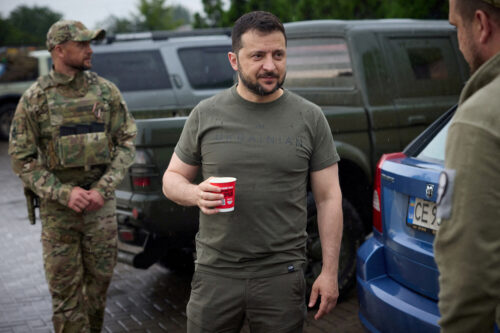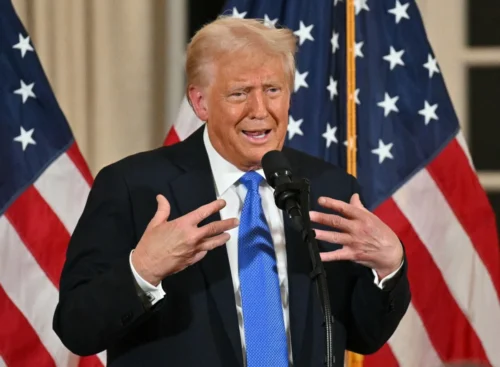
Shushan Gevorgyan: There are so many wonderful people among our people, but for some reason they prefer to keep a low profile…
ABC Interview’s guest was singer Shushan Gevorgyan. We talked with Shushan about the problems in the music industry. The singer often touches the military-patriotic theme, noting that these songs are not only a necessity, but they also tell a story… Shushan makes a series of programs in the Diaspora, presenting the everyday life of Armenian communities and the problems they face. She is convinced that people in Armenia should be aware of what is happening to their compatriots abroad.
– Shushan, you have many patriotic songs in your repertoire. What is the reason for this? Is it a preference or an imperative?
– I started singing quite late, in 2020 and I have songs of different genres. In 2020, however, the choice of military-patriotic songs seemed to be an imperative. Regardless of the historical period, there is so much power in our songs; there is so much vitality. And in 2020, after that great nationwide tragedy, our people needed to be encouraged through art. To comfort people through music. Of course, it was difficult, but it was necessary to encourage them.
– When I was going through your Facebook page, I saw an interesting post there. You wrote that there is a kind of love that people don’t talk about… Is it about the love for the Homeland?
– We are the kind of people who do not like to talk about their feelings; the same holds true for the love for the Homeland. We still don’t understand how we should talk about the Homeland: We either keep silent or express ourselves with such unbearable pathos.
– You often go to Moscow. What takes you there and what brings you back to Yerevan?
– I went to Moscow for study purposes. During all this time that I have been studying and working there, I am constantly asked if Moscow has changed me, and I say, “Yes, it has made me more of an Armenian…” When you fall into that great ocean, you have two options: either to become a part of that ocean, to assimilate, or to stay who you are.
– Recently I was also in Moscow and in the Armenian church in Moscow I inadvertently became a listener to a conversation of a group of Armenians, which was exclusively in Russian. I am sure that many of them knew Armenian, but they avoided using it, why? And I remembered one of the Russian classics, who said, “You will not escape from yourself on any horse…” Why do many of our compatriots avoid their Armenian origins?
– That is a common problem. I don’t think they want to run away from their roots consciously, but they don’t want to be a minority anywhere. I have talked to Armenian community representatives in different countries. They are wonderful people in communication; they preserve many Armenian traditions in their homes, but they do have a complex not to stand out from the host nation with their language, customs, etc.
– You have a program called “Let’s Sing in Armenian, Let’s Talk in Armenian”. In fact, during the program, serious issues are touched upon, but you do it lightly with songs, humor, etc. The viewer watches it seriously, but perceives it lightly.
– For me, there is a kind of sun among all my good compatriots, the sun of Armenia… My Russian fellow students used to see it in me and constantly emphasized it. I think it is the reflection of nature and identity. That’s what I wanted my viewers to see in the program, in its participants…
The idea of the program came into my mind when I was teaching at the Home of Armenians in Moscow. I was the artistic director there for almost four years, but I was also teaching children. Those wonderful Armenian children, with Armenian appearance, came and did not speak Armenian at all. The idea of the program occurred to me right then, when I came across that issue and realized that something needed to be done. I know that my contribution is a drop in the ocean but I will try to do my best.
– I was watching an episode about Greece; A young Armenian living there said that the Diaspora should change its viewpoint in order to help Armenia in this situation.
– In Armenia, Diaspora is viewed as a united, comprehensive entity, but that is not the case. The Diaspora is different with its internal problems and disagreements. People living in the Diaspora are very different. The first difference can be seen among the people who left Armenia much earlier. There are old and new diaspora communities, which are very different from each other. I am not saying that one of them is right and the other one is wrong, but they are different.
– Have you seen a work of art in Armenia recently that has deeply impressed you?
People might think this is a subjective opinion, but I’m really saying this objectively: the film made by my younger sister, director Ovsanna Gevorgyan, was shown on the margins of the Golden Apricot Film Festival. That film really moved me. The topic of the 44-day war was delicately touched upon in the film. I consider myself a very objective person… When I left the hall, I could not come to my senses for a long time…
Interview by Lena Gevorgyan


